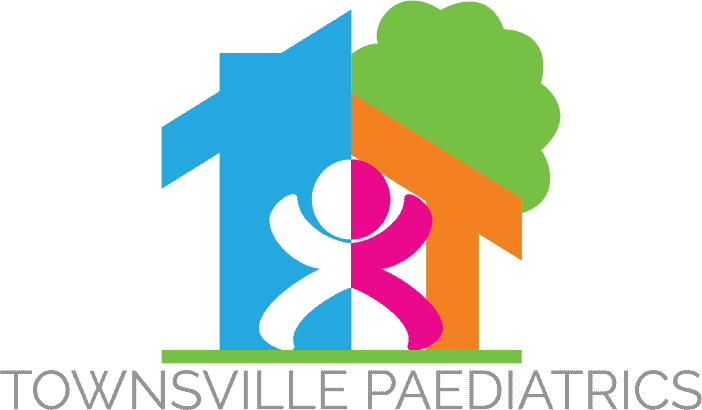Life with a child or teen with attention deficit hyperactivity disorder (ADHD) can be frustrating, even overwhelming. But as a parent you can help your child overcome daily challenges, channel their energy into positive arenas, and bring greater calm to your family. And the earlier and more consistently you address your child’s problems, the greater chance they have for success in life.
Children that have been diagnosed with ADHD have some deficits in the ability to think and plan ahead, organise, control impulses, and complete tasks. That means you need to take over as the executive, providing extra guidance while your child gradually acquires executive skills of their own.
Although the symptoms of ADHD can be nothing short of exasperating, it’s important to remember that the child who is ignoring, annoying, or embarrassing you is not acting willfully. Kids with ADHD want to sit quietly; they want to make their rooms tidy and organized; they want to do everything their parent says to do—but they don’t know how to make these things happen.
If you keep in mind that having ADHD is just as frustrating for your child, it will be a lot easier to respond in positive, supportive ways. With patience, compassion, and plenty of support, you can manage childhood ADHD while enjoying a stable, happy home.

ADHD and your family
Before you can successfully parent a child with ADHD, it’s essential to understand the impact of your child’s symptoms on the family as a whole. Children with ADHD exhibit a number of behaviours that can disrupt family life. They often don’t “hear” parental instructions, so they don’t obey them. They’re disorganized and easily distracted, keeping other family members waiting. Or they start projects and forget to finish them—let alone clean up after them. Children with impulsivity issues often interrupt conversations, demand attention at inappropriate times, and speak before they think, saying tactless or embarrassing things. It’s often difficult to get them to bed and to sleep. Hyperactive children may tear around the house or even put themselves in physical danger.
Because of these behaviours, siblings of children with ADHD face a number of challenges. Their needs often get less attention than those of the child with ADHD. They may be rebuked more sharply when they errors, and their successes may be less celebrated or taken for granted. They may be enlisted as assistant parents—and blamed if the sibling with ADHD misbehaves under their supervision. As a result, siblings may find their love for a brother or sister with ADHD mixed with jealousy and resentment.
The demands of monitoring a child with ADHD can be physically and mentally exhausting. Your child’s inability to “listen” can lead to frustration and that frustration to anger—followed by guilt about being angry at your child. Your child’s behaviour can make you anxious and stressed. If there’s a basic difference between your personality and that of your child with ADHD, their behaviour can be especially difficult to accept.
In order to meet the challenges of raising a child with ADHD, you must to be able to master a combination of compassion and consistency. Living in a home that provides both love and structure is the best thing for a child or teenager who is learning to manage ADHD.
Create structure
Make a routine for your child and stick to it every day. Establish rituals around meals, homework, playtime, and bedtime. Simple daily tasks, such as having your child lay out his or her clothes for the next day, can provide essential structure.
Break tasks into manageable pieces
Try using a large wall calendar to help remind a child of their duties. Color coding chores and homework can keep your child from becoming overwhelmed with everyday tasks and school assignments. Even morning routines should be broken down into discrete tasks.
Simplify and organise your child’s life
Create a special, quiet space for your child to read, do homework, and take a break from the chaos of everyday life. Keep your home neat and organized so that your child knows where everything goes. This helps reduce unnecessary distractions.
Limit distractions
Children with ADHD welcome easily accessible distractions. Television, video games, and the computer encourage impulsive behavior and should be regulated. By decreasing time with electronics and increasing time doing engaging activities outside the home, your child will have an outlet for built-up energy.
Encourage exercise
Physical activity burns excess energy in healthy ways. It also helps a child focus their attention on specific movements. This may decrease impulsivity. Exercise may also help to improve concentration, decrease the risk for depression and anxiety, and stimulate the brain in healthy ways. Many professional athletes have ADHD. Experts believe that athletics can help a child with ADHD find a constructive way to focus their passion, attention, and energy.
Regulate sleep patterns
Bedtime may be an especially difficult for children suffering from ADHD. Lack of sleep exacerbates inattention, hyperactivity, and recklessness. Helping your child get better sleep is important. To help them get better rest, eliminate stimulants like sugar and caffeine, and decrease television time. Establish a healthy, calming bedtime ritual.
Encourage out-loud thinking
Children with ADHD can lack self-control. This causes them to speak and act before thinking. Ask your child to verbalize their thoughts and reasoning when the urge to act out arises. It’s important to understand your child’s thought process in order to help him or her curb impulsive behaviors.
Promote wait time
Another way to control the impulse to speak before thinking is to teach your child how to pause a moment before talking or replying. Encourage more thoughtful responses by helping your child with homework assignments and asking interactive questions about a favorite television show or book.
Believe in your child
Your child likely doesn’t realize the stress that their condition can cause. It’s important to remain positive and encouraging. Praise your child’s good behavior so they know when something was done right. Your child may struggle with ADHD now, but it won’t last forever. Have confidence in your child and be positive about their future.
Find individualised counseling
You can’t do it all. Your child needs your encouragement, but they also need professional help. Find a therapist to work with your child and provide another outlet for them. Don’t be afraid to seek assistance if you need it. Many parents are so focused on their children that they neglect their own mental needs. A therapist can help manage your stress and anxiety as well as your child’s. Local support groups may also be a helpful outlet for parents.
Take breaks
You can’t be supportive 100 percent of the time. It’s normal to become overwhelmed or frustrated with yourself or your child. Just as your child will need to take breaks while studying, you’ll need your own breaks as well. Scheduling alone time is important for any parent. Consider hiring a babysitter. Good break options include:
going for a walk
going to the gym
taking a relaxing bath
Calm yourself
You can’t help an impulsive child if you yourself are aggravated. Children mimic the behaviors they see around them, so if you remain composed and controlled during an outburst, it will help your child to do the same. Take time to breathe, relax, and collect your thoughts before attempting to pacify your child. The calmer you are, the calmer your child will become.
“Don’ts” for dealing with an ADHD child
Don’t sweat the small stuff
Be willing to make some compromises with your child. If your child has accomplished two of the three chores you assigned, consider being flexible with the third, uncompleted task. It’s a learning process and even small steps count.
Don’t get overwhelmed and lash out
Remember that your child’s behavior is caused by a disorder. ADHD may not be visible on the outside, but it’s a disability and should be treated as such. When you begin to feel angry or frustrated, remember that your child can’t “snap out of it” or “just be normal.”
Don’t be negative
It sounds simplistic, but take things one day at a time and remember to keep it all in perspective. What is stressful or embarrassing today will fade away tomorrow.
Don’t let your child or the disorder take control
Remember that you are the parent and, ultimately, you establish the rules for acceptable behavior in your home. Be patient and nurturing, but don’t allow yourself to be bullied or intimidated by your child’s behaviors.

